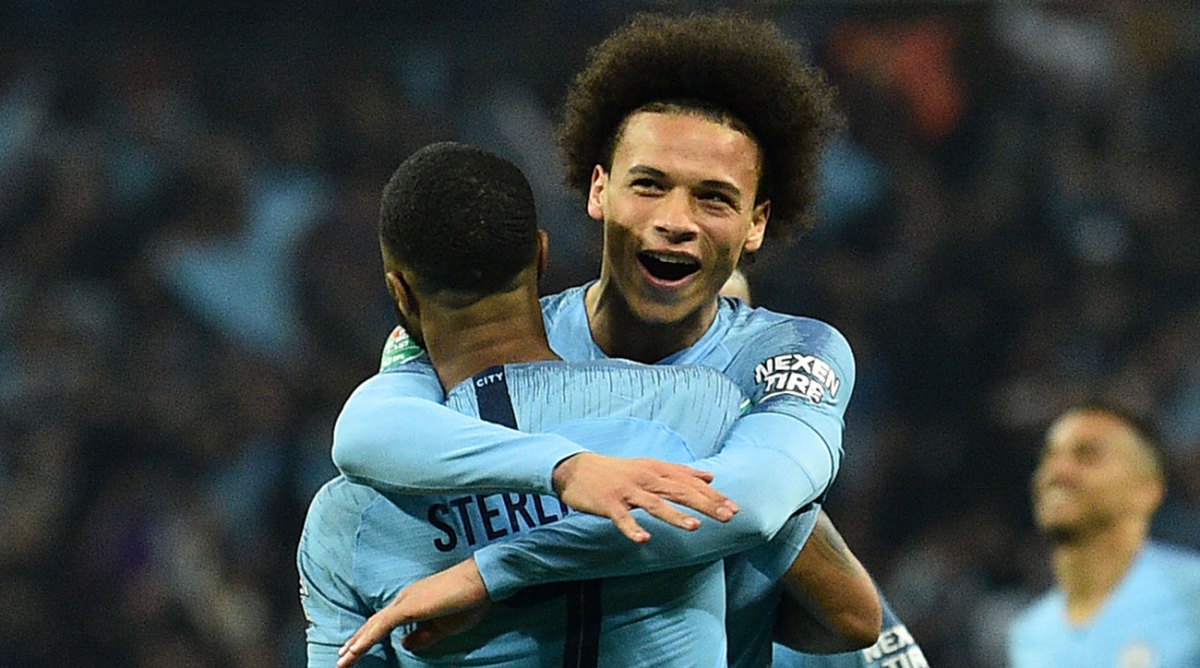As Guardiola's Man City Celebrates, Sarri Leaves Wembley Betrayed, Undermined in Defeat

Manchester City won the first trophy of the season, retained a competition for the first time in club history and took the first step towards a possible quadruple, but this, strangely, was a day not about Pep Guardiola but about Maurizio Sarri. The Chelsea manager had done much right, finding a way to thwart a City that had beaten his side 6-0 just a fortnight ago, and yet he ended up humiliated, his authority in tatters, after an extraordinary act of insubordination from his goalkeeper Kepa Arrizabalaga.
Towards the end of extra time, Kepa had gone down with a cramp. Although he got back to his feet, Sarri tried to replace him with Willy Caballero, a penalty specialist who had played a key role in the shootout when Manchester City had beaten Liverpool in the final in 2016. But Kepa refused to go off. The suggestion has been in recent weeks that Sarri has lost the faith of the dressing room: here was absolute proof. So forlorn did Sarri seem that he appeared content just to let the players get on with sorting out who was taking the penalties, before being pointedly invited into the players huddle.
Was it distracting? It’s impossible to know, but the first penalty in the shootout, from Jorginho, was weak and easily saved by Ederson. Although Kepa saved from Leroy Sane, a David Luiz miss was followed by Raheem Sterling's penalty, which gave City the win and almost certainly ended Sarri’s brief reign at Stamford Bridge. And that after what had been shaping up to be a very good afternoon for him.

Asked whether Sarri-ball can work in England, Maurizio Sarri has repeatedly shrugged and said that what his Chelsea side has been producing is not Sarri-ball. Neither was Sunday's performance, but it was a lot more effective than the way Chelsea has been playing against top sides of late. Sarri has been intransigent, stubborn to an extraordinary degree over the past few weeks, persistently sending out the same side in the same shape to play the same way and the results have, perhaps not surprisingly, been the same.
Here, he did adapt. When Chelsea beat City at Stamford Bridge at the beginning of December, it did it by sitting deep, allowing City to have the ball and using David Luiz’s passing ability from the back to hit the space behind the City full backs. The question at the time was whether that was a deliberate policy, whether Chelsea had deliberately lured City on its defense. The suspicion, as good as confirmed by Sarri afterwards, was that it was not, that it was a strategy Chelsea adopted out of necessity in the face of City’s furious pressing.
At the Etihad two weeks ago, Chelsea, ignoring the lessons of December, played in its familiar way. This time it did not survive the initial storm and was battered 6-0. As a result this made the League Cup final, at least in part, a test of just how stubborn Sarri was really prepared to be. Would he really do exactly the same again? He did. This time his policy was to adopt the strategy that, stumbled upon almost by mistake, had been so effective at Stamford Bridge. His side sat deep, allowed City possession and looked to strike on the break, something facilitated by the deployment of Eden Hazard rather than Gonzalo Higuain in a notional center forward position, giving it three players capable of attacking at pace.

But really, this was about how well Chelsea played defensively, how good its shape was as David Silva and Kevin De Bruyne were barely involved, frustrated by its opponent's resilience. The game made difficult viewing, and that is entirely to Sarri’s credit. There will be those who wonder if this is a betrayal of his philosophy, the style he has evangelized so consistently throughout his career, but it’s entirely possible to work towards a goal while momentarily deviating from it. And besides, football is not religion and the principles of a manager should be a guide to his approach to winning matches, not some immutable law.
So flexible did Sarri prove that, when the time came to substitute Ross Barkley near the end, he sent on not Mateo Kovacic, who has either replaced Barley or been replaced by him 20 times this season, he instead gave the nod to the lesser-spotted Ruben Loftus-Cheek, a move that contrived to be both surprising and attacking.
Having settled into a torpor, though, the game could not be restored to wakefulness. Extra time drifted by and Sarri perhaps contemplated vindication and the first trophy in his career. Instead, he left Wembley undermined by his goalkeeper and probably facing the exit.
